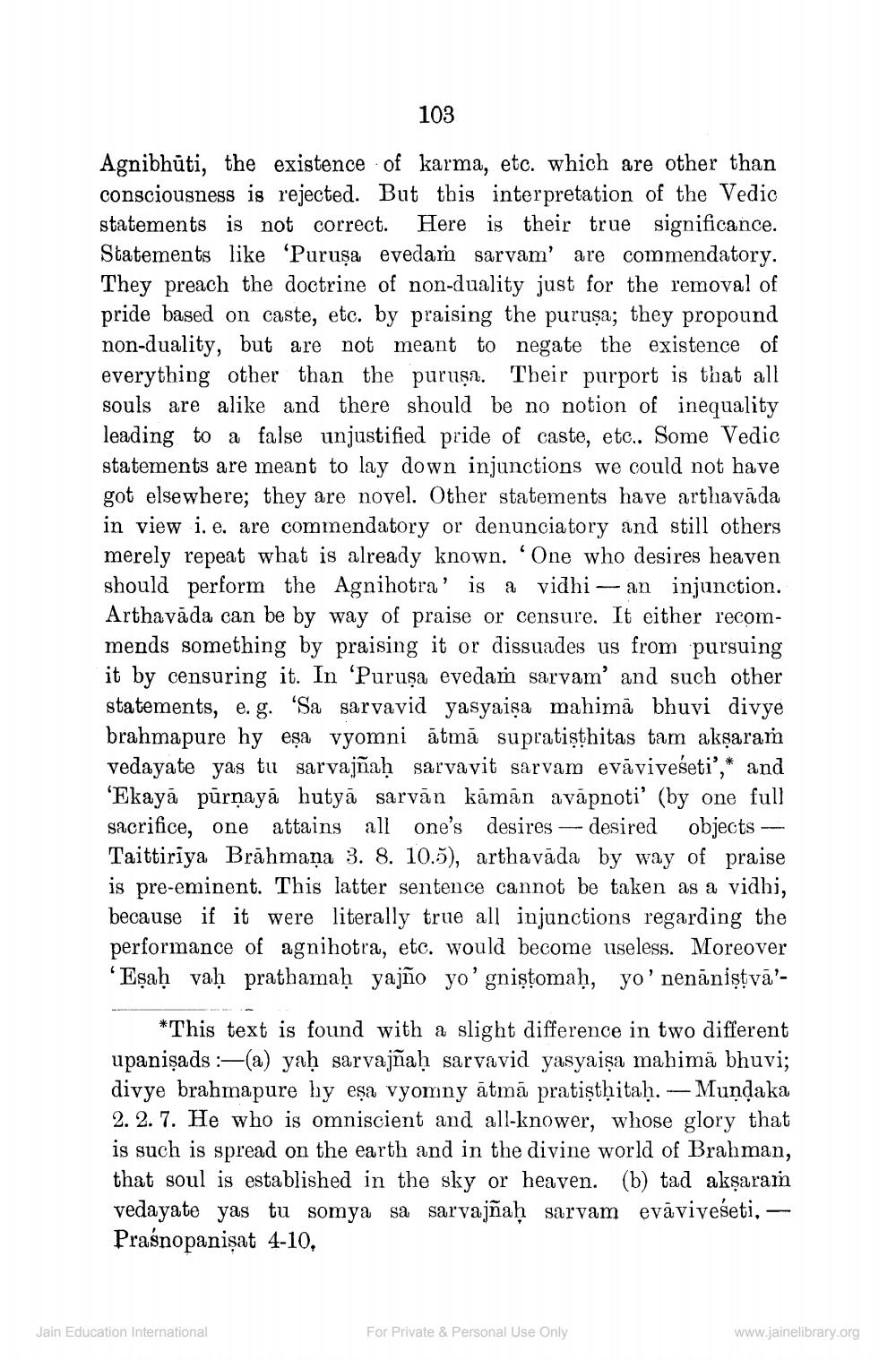________________
103
Agnibhūti, the existence of karma, etc. which are other than consciousness is rejected. But this interpretation of the Vedic statements is not correct. Here is their true significance. Statements like 'Purusa evedam sarvam' are commendatory. They preach the doctrine of non-duality just for the removal of pride based on caste, etc. by praising the puruşa; they propound non-duality, but are not meant to negate the existence of everything other than the puruşa. Their purport is that all souls are alike and there should be no notion of inequality leading to a false unjustified pride of caste, etc.. Some Vedic statements are meant to lay down injunctions we could not have got elsewhere; they are novel. Other statements have arthavāda in view i. e. are commendatory or denunciatory and still others merely repeat what is already known. 'One who desires heaven should perform the Agnihotra' is a vidhi — an injunction. Arthavāda can be by way of praise or censure. It either recommends something by praising it or dissuades us from pursuing it by censuring it. In 'Puruşa evedam sarvam' and such other statements, e. g. 'Sa sarvavid yasyaiņa mahimā bhuvi divye brahmapure hy esa vyomni ātmā supratisthitas tam aksa vedayate yas tu sarvajñaḥ sarvavit sarvam evāviveģetio,* and ‘Ekayā pūrņayā hutyā sarvān kāmān avāpnoti’ (by one full sacrifice, one attains all one's desires - desired objects - Taittiriya Brāhmaņa 3. 8. 10.5), arthavāda by way of praise is pre-eminent. This latter sentence cannot be taken as a vidhi, because if it were literally true all injunctions regarding the performance of agnihotra, etc. would become useless. Moreover 'Eşaḥ vaḥ prathamaḥ yajño yo’gniştomaḥ, yo'nenāniștvā'
*This text is found with a slight difference in two different upanişads —a) yaḥ sarvajñaḥ sarvavid yasyaişa mahimă bhuvi; divye brahmapure hy eșa vyomny ātmā pratisthitaḥ. — Mundaka 2. 2. 7. He who is omniscient and all-knower, whose glory that is such is spread on the earth and in the divine world of Brahman, that soul is established in the sky or heaven. (b) tad akşaram vedayate yas tu somya sa sarvajñaḥ sarvam evāviveģeti, – Praśnopanişat 4-10,
Jain Education International
For Private & Personal Use Only
www.jainelibrary.org




